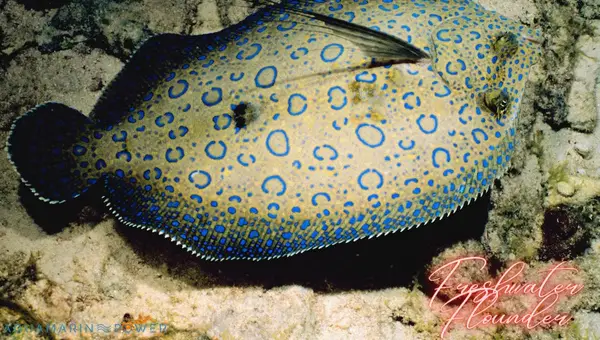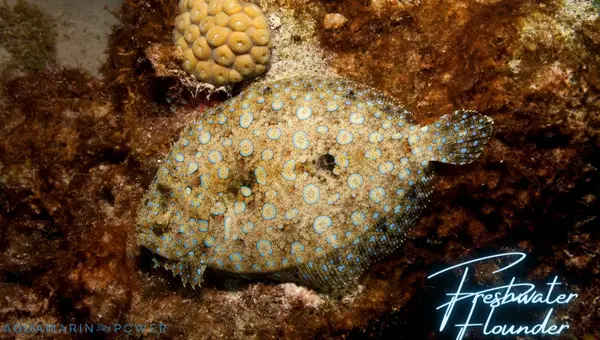Freshwater flounder is a unique and fascinating fish species that many aquarium enthusiasts love to keep in their tanks. However, before you decide to add one to your collection, there are several pros and cons to consider. In this article, we will explore the benefits and drawbacks of keeping freshwater flounder in your aquarium, so you can make an informed decision.
From their unusual body shape and behavior to their ability to adapt to various water conditions, freshwater flounder can be a great addition to your tank. But on the other hand, they require specific care and can be challenging to maintain. So, let’s dive in and explore the world of freshwater flounder together!
Freshwater flounders are unique and interesting fish to keep in your aquarium. They are flat, thin, and can change color to blend into their surroundings. However, they require a specific environment and diet to thrive. Pros of keeping freshwater flounders include their peaceful nature and ability to eat small snails and shrimp. Cons include their sensitivity to water quality and the need for a sandy substrate. Overall, freshwater flounders can be a rewarding addition to your aquarium if you are willing to provide the necessary care.

Keeping Freshwater Flounder in Your Aquarium: Pros and Cons
Freshwater flounders have become increasingly popular in the aquarium hobby, as they are unique and interesting fish that can add variety to any freshwater tank. However, before deciding to keep them, it’s important to weigh the pros and cons of doing so. In this article, we’ll explore the benefits and drawbacks of keeping freshwater flounders in your aquarium.
Pros
Freshwater flounders are fascinating fish that can be a joy to watch. They have a unique appearance, with their flat, almost pancake-like bodies and large, expressive eyes. They are also relatively easy to care for, making them a good choice for beginner aquarists.
Another benefit of keeping freshwater flounders is that they are peaceful fish, and can be kept with a variety of other species. They are also relatively hardy, and can tolerate a range of water conditions. Additionally, they are omnivores, which means they will eat a variety of foods, including pellets, flakes, and freeze-dried or live foods.
Cons
One of the main drawbacks of keeping freshwater flounders is that they can be difficult to feed. Their flat bodies make it difficult for them to compete with other fish for food, and they may require specialized feeding techniques to ensure they are getting enough to eat.
Another potential issue with freshwater flounders is that they can be sensitive to water quality. They require clean, well-oxygenated water to thrive, and may be more susceptible to disease in dirty or poorly maintained aquariums. Additionally, they can be territorial, and may become aggressive towards other flounders or similar species if they feel their space is being invaded.
Feeding Freshwater Flounders
As mentioned, feeding freshwater flounders can be a challenge. Their flat bodies make it difficult for them to compete with other fish for food, and they may require specialized feeding techniques to ensure they are getting enough to eat.
One way to ensure your freshwater flounders are getting enough to eat is to feed them sinking pellets or wafers. These can be placed on the bottom of the tank, where the flounders can easily find them. You can also try feeding them live or frozen foods, such as bloodworms or brine shrimp, which can be suspended in the water column to give the flounders a better chance of getting to them.
Water Quality and Maintenance
As mentioned, freshwater flounders can be sensitive to water quality. They require clean, well-oxygenated water to thrive, and may be more susceptible to disease in dirty or poorly maintained aquariums.
To maintain good water quality in your aquarium, it’s important to perform regular water changes and keep your filter clean. You should also test your water regularly to ensure the parameters are within acceptable ranges for your fish. If you notice any signs of illness or stress in your flounders, such as lethargy, loss of appetite, or discoloration, it’s important to address the issue promptly to prevent it from spreading to other fish in the tank.
Compatibility with Other Fish
Freshwater flounders are generally peaceful fish, and can be kept with a variety of other species. However, it’s important to choose tank mates carefully. Flounders are bottom dwellers, and may be intimidated by fast-swimming or aggressive fish that occupy the upper levels of the tank.
Additionally, flounders can be territorial, and may become aggressive towards other flounders or similar species if they feel their space is being invaded. To prevent this, it’s important to provide plenty of hiding places and visual barriers in the tank, such as rocks, plants, or driftwood.
Conclusion
Keeping freshwater flounders in your aquarium can be a rewarding experience, but it’s important to weigh the pros and cons before deciding to do so. These unique fish require specialized care, particularly when it comes to feeding and water quality. However, with the right setup and attention to detail, they can make a fascinating addition to any freshwater tank.
| Pros | Cons |
|---|---|
| Unique appearance | Difficult to feed |
| Peaceful nature | Sensitive to water quality |
| Relatively easy to care for | Territorial behavior |
| Can be kept with a variety of other species |
Frequently Asked Questions
Keeping freshwater flounder in your aquarium can be a unique and interesting experience. However, it is important to understand the pros and cons before making the decision to add them to your tank. Here are some common questions and answers to help you decide.
What are the pros of keeping freshwater flounder in your aquarium?
One of the main pros of keeping freshwater flounder in your aquarium is their unique appearance. Their flat and elongated shape, along with their camouflage coloring, make them an interesting addition to any tank. They are also relatively easy to care for and can coexist with other peaceful fish species.
Another pro is that they are bottom-dwellers, meaning they will not compete with other fish for food at the surface of the water. This can help to reduce feeding time and make your aquarium more efficient.
What are the cons of keeping freshwater flounder in your aquarium?
One of the main cons of keeping freshwater flounder is that they require a specific type of environment to thrive. They need a sandy substrate and plenty of hiding places, such as rocks or plants. If these requirements are not met, they may become stressed and unhappy in the tank.
Another con is that they are not very active swimmers and may spend most of their time hiding or resting on the bottom of the tank. This can make them less interesting to watch compared to other fish species.
What should I feed my freshwater flounder?
Freshwater flounder are carnivorous and should be fed a diet of meaty foods, such as live or frozen shrimp, bloodworms, and small pieces of fish. It is important to avoid overfeeding, as this can lead to health issues and poor water quality in the tank.
It is also recommended to provide variety in their diet by occasionally offering different types of food, such as brine shrimp or krill.
How often should I clean my tank with freshwater flounder?
The frequency of tank cleaning will depend on the size of your tank, the number of fish, and the efficiency of your filtration system. However, it is recommended to perform a partial water change of around 20% every 2-3 weeks to maintain good water quality. It is also important to regularly clean the substrate and any decorations in the tank to remove uneaten food and waste.
Be careful not to disturb the hiding places of your freshwater flounder too much during cleaning, as this can cause stress and potentially harm the fish.
Can I keep freshwater flounder with other fish species?
Yes, freshwater flounder can coexist with other peaceful fish species that share similar water and environmental requirements. However, it is important to avoid keeping them with aggressive or territorial fish that may bully or harm them.
It is also recommended to avoid keeping them with bottom-dwelling fish that may compete with them for food or territory, such as cichlids or loaches.

Are Aquarium Air Pumps Oxygen Tanks? Fish Tank Bubbles, Do You Need Them?
In conclusion, there are both pros and cons to keeping freshwater flounder in your aquarium. On the one hand, they are fascinating creatures with unique behaviors and interesting physical characteristics that make them a joy to observe. Additionally, they can help to keep your tank clean by scavenging for food and cleaning up debris.
However, there are also some downsides to keeping freshwater flounder. They can be quite difficult to care for properly, as they require a specific diet and water conditions in order to thrive. Additionally, they may not be compatible with other fish in your aquarium, as they can be territorial and aggressive.
Overall, if you are an experienced aquarium owner and are willing to put in the time and effort to properly care for your freshwater flounder, they can be a great addition to your tank. However, if you are new to the hobby or are looking for a low-maintenance pet, it may be best to choose a different type of fish.
